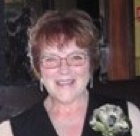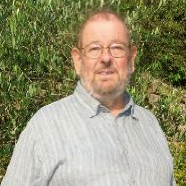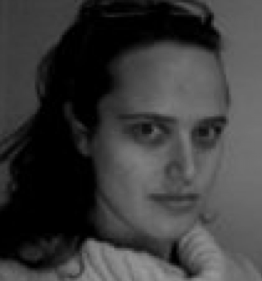Practitioners' Voices in Classical Reception Studies
ISSN 1756-5049
You are here
- Home
- Past Issues
- Issue 2 (2010)
Issue 2 (2010)
Editor's Introduction
This edition of Practitioners’ Voices publishes interviews with poets, translators and theatre directors. It focuses on how they engage with Greek and Latin material in and through translation, rewriting, new writing and staging (including questions about translation to the stage as well as for the stage). The interviews reflect an increasing interest in how the work of scholars and practitioners is not only mutually informative but also interacts in the creation of literary and theatrical works. The boundaries between translation and creativity are increasingly recognised as porous. Furthermore, various aspects of these activities may interact in the work and careers of the individuals themselves.
The seven people interviewed for this publication represent a broad spectrum of types of engagement with Greek and Roman material. Maureen Almond and Josephine Balmer are both poets but their routes to classical material are very different. Oliver Taplin, Michael Ewans and Ian Ruffell are all academics and translators but only Ewans also directs performances while only Taplin also creates his own work. Martin Wylde and Helen Eastman are both theatre directors but had different educational and training routes to their work with classical texts, translations and adaptations and Eastman is now also branching out as a writer. These overlaps and contrasts between the approaches and careers of our contributors provide an illuminating view of different types of ‘hybrid’ practitioners at work. Further information about the interviewees’ work is available via the links to their websites.
The interviews published here were recorded over a period of ten years (2000-2010) as part of the investigations by the Reception of Classical Texts Research Project at the Open University. The Project was established to examine the striking impact of the use of classical material in poetry and drama from c. 1970 to the present. A major strand in the research was the documentation and analysis of the processes of creation involved in translation, in new writing and in performance and the format of the interviews reflects that emphasis.
The Project website includes critical reflection on the sources used for its research and interviews are no exception. No interview is an entirely objective record. Interviews are shaped by the aims of both the interviewer and the interviewee (for a critical discussion of the different kinds of interviews used in the research project see the articles by Alison Burke). In the interviews included here, there was no rigid template but in addition to exploring particular examples from individual careers, the interviewer asked questions about the interviewees’ literary and theatrical backgrounds; how they came to be interested in Greek and Roman material and whether they had a classical education; how they accessed Greek and Roman texts and contexts; whether they collaborated with other scholars or practitioners (and if so, how) and how the classically-related work is situated in the context of their practice as a whole. For each interview there are audio extracts plus a full transcript. Audio clips and transcripts may be accessed in any order. Users are welcome to use the material for private study and for research and teaching. Copyright remains with the individuals concerned and acknowledgement of this publication as the source should be made in essays, articles and lectures (See copyright notice).
We are grateful for the support of the Open University and the Arts Faculty Research Committee of the OU and to Pat Dixon for her work in transcribing the tapes. We also thank the British Academy who supported the research on poetry through a Larger Research Grant award. We extend especially warm appreciation to all those who agreed to be interviewed. It would not be possible to undertake research of this kind without their generous contributions of their time and expertise.
Lorna Hardwick, August 2010
Josephine Balmer
Josephine Balmer's latest collection, The Word for Sorrow, based around Ovid's Tristia, was published by Salt in 2009. Previous poetry collections include Chasing Catullus: Poems, Translations & Transgressions, alongside the classical translations Catullus: Poems of Love and Hate, Classical Women Poets and Sappho: Poems & Fragments (all published by Bloodaxe). She has been awarded a South East Arts' Writers Bursary, two Authors' Foundation Awards, an Arts' Council Write Out Loud award and, forThe Word for Sorrow, a Wingate Foundation Scholarship. She has written widely on poetry and translation for publications such as the Observer, the Independent on Sunday, the Times, the Times Literary Supplement and the New Statesman, and from 2004-2009 was reviews editor of the journal Modern Poetry in Translation. Chair of the Translators' Association from 2002-2005, she was also a longstanding judge for the The Times Stephen Spender Prize for poetry translation. A former Royal Literary Fund Writing Fellow at the University of Sussex, she studied Classics and Ancient History at University College, London and gained a PhD in Literature and Creative Writing from the University of East Anglia.
Maureen Almond
Maureen has been writing poetry since 1992. A former Administrator and Personnel Manager, she now earns her living as a poet and poetry tutor. She graduated with an MA in poetry from the University of Newcastle-upon-Tyne in 2002. You can read details of Maureen's publications including her latest Chasing the Ivy, which modernizes thirty-eight poems of Horace from his Odes (Bk 1) at her website: www.maureenalmond.com
Oliver Taplin
Oliver was Tutorial Fellow of Magdalen College at Oxford from 1973 to 2008; he was given the title of Professor in 1996. As an Emeritus Fellow and Professor, he remains actively involved with the Archive of Performances of Greek and Roman Drama (APGRD) and related projects. His books include The Stagecraft of Aeschylus (1977), Greek Tragedy in Action (1978), Comic Angels (1993), and Pots and Plays (2007). He has also worked with productions in the theatre, includingThe Oresteia at the National Theatre (1980-81), The Thebans at the RSC (1991-92), and The Oresteia at the National Theatre (1999-2000).
Martin Wylde
Martin Wylde read Drama and English at the University of Bristol. He is currently Senior Lecturer at Central School of Stage and Drama where he teaches acting on both MA and BA courses. Martin trained as a director at The Orange Tree with Sam Walters, the Donmar Warehouse with Sam Mendes, and at the Royal National Theatre Studio. He worked as assistant director, director, associate director and artistic director for over ten years working on more than 40 productions. Martin has focussed on text-based theatre, both classical work and new writing. He has considerable experience in the commissioning and development of new plays.
Helen Eastman
Helen Eastman trained as a director at the London Academy of Music and Dramatic Art, after graduating in Classics and English from Oxford University, with the Passmore Edwards Prize. Her career as a director has spanned theatre, opera and occassionaly circus. Work includes Dido and Aeneas (ETO), The Cure at Troy (UK tour and Delphi International Festival), Cloudcuckooland (UK tour), Live Canon (UK tour). She is Literary Associate and Senior Reader at Soho Theatre, Guest Fellow in Contemporary Performance Practice at Westminster Theatre, Producer of the Onassis Programme at Oxford University and Director of the Greek Play at Cambridge University. She has written a number of librettoes for children's operas.
Michael Ewans
Michael Ewans specializes in translating Greek tragedy and comedy, directing plays and chamber operas, and writing books and articles which explore how operas and dramas work in the theatre.
He has recently completed Aristophanes: the Last Years of the War - an edition of Lysistrata, The Women’s Festival and Frogs in his own new translations with theatrical commentaries; and he is currently working on Aristophanes on War and Peace, an edition of Acharnians, Knights and Peace.
Ian Ruffell
Ian's main interests are in Greek drama (especially comedy), Roman satire and cultural and political theory. His DPhil was on the absurd in Attic Old Comedy (1999), and an expanded and revised version is due to appear in 2010 with OUP, entitled Politics and Anti-Realism in Attic Old Comedy. In 2007, he provided the literal translation for the National Theatre of Scotland's production of the Bacchae, adapted by David Greig and directed by John Tiffany, which opened the 2007 Edinburgh International Festival.






